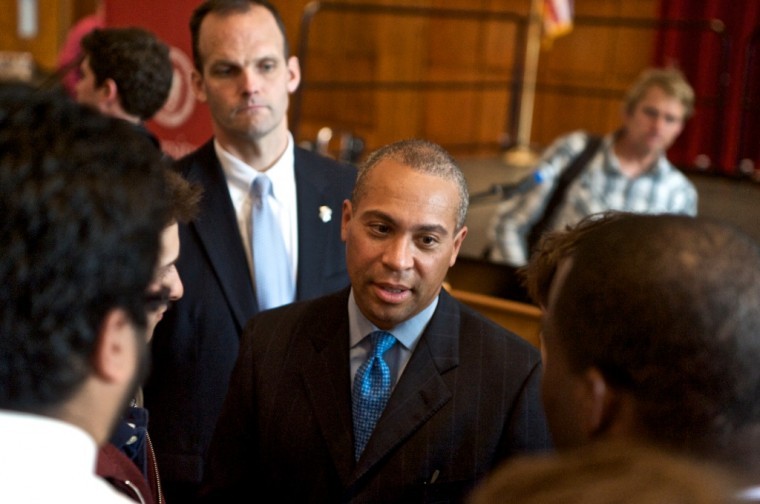The University of Massachusetts Board of Trustees approved a 4.9 percent fee increase by a vote of 17 to 2 for the fall 2012 semester. This increase will net the University $25 million in new revenue. The added revenue will be used primarily to pay back the UMass Building Authority, as well as to fund increases negotiated with the University’s unionized workers.
The Board of Trustees released a newsletter detailing the factors that led to its decision, and revealed how much more in-state students will pay this fall.
According to the newsletter, “Under the new student-charge structure, tuition and fees for in-state undergraduates will on average rise from $11,901 during this past year to $12,481 in 2012-2013. The 4.9 percent increase is lower than the average increase for other Massachusetts public institutions and is generally lower when compared to public universities in the region and the nation.”
Governor Deval Patrick publicly opposed the fee increase. He wrote a letter to the Board prior to the decision and convinced Massachusetts Secretary of Education Paul Reville to vote against the increase. In a June Boston.com article by Mary Carmicheal, Governor Patrick also expressed his opinion on rising state funding to higher education.
The article quoted Governor Patrick as saying: “Quid pro quo for [increased state funding] … is to show the public that every element of waste, every dime, has been wrenched out, where it can be.”
In response to the charge that the University needs to cut its spending in justify increased state investment, UMB Student Trustee Alexis Marvel stated that, “President Caret has done a good job of finding new revenue streams. He has overseen good investments and capital projects and the UMass foundation has grown. The governor’s statement was purely political.”
Along with the fee increase, the Board of Trustees passed an amendment stating that it would freeze fees for the next two years if the state agreed to, once again, cover 50 percent of the system’s operating cost.
In the newsletter released by the Board of Trustees, James J. Karam, chairman of the board, called the amendment “A powerful message that we are all serious about controlling the cost of higher education and easing the debt burden on our students.”
According to Marvel, the amendment to freeze fees is flawed. If the state raises appropriations to the system in 2013, that does not mean that the appropriations will remain in 2014. The board cannot decide to freeze fees for two years because they will not know what the second year’s state appropriations will be. “It was just a way to put pressure on the state,” said Marvel.
The same Globe article reported that, in terms of making cuts to its own budget, “In the last three years the university has cut 645 jobs, saving $68 million, and 160 more positions are on the chopping block for another $17.4 million.”
“I think there is a lot of opportunity for cuts to be made in terms of administrative pay,” Marvel remarked. “We pay our adjunct faculty less than 5 thousand dollars per course: at the same time we are paying some administrators well over 100 thousand dollars.”
Marvel went on to say that, “It is important to realize that though the state is saying we should be more efficient find ways to be more cost effective, there is no way of really making them happy.” She believes the most effective way to get the state to raise its funding is through political activism and public outcry.
Inquires to the governors office were responded to by Heather Johnson, Spokeswoman for the Executive Office of Education. “Keeping public higher education affordable and within reach of all Massachusetts students is a key to future growth and the Governor knows there is more to be done on that front. As the Commonwealth’s economy continues to recover, we remain hopeful that we will be able to support an even greater investment in our public higher education system.”





















































